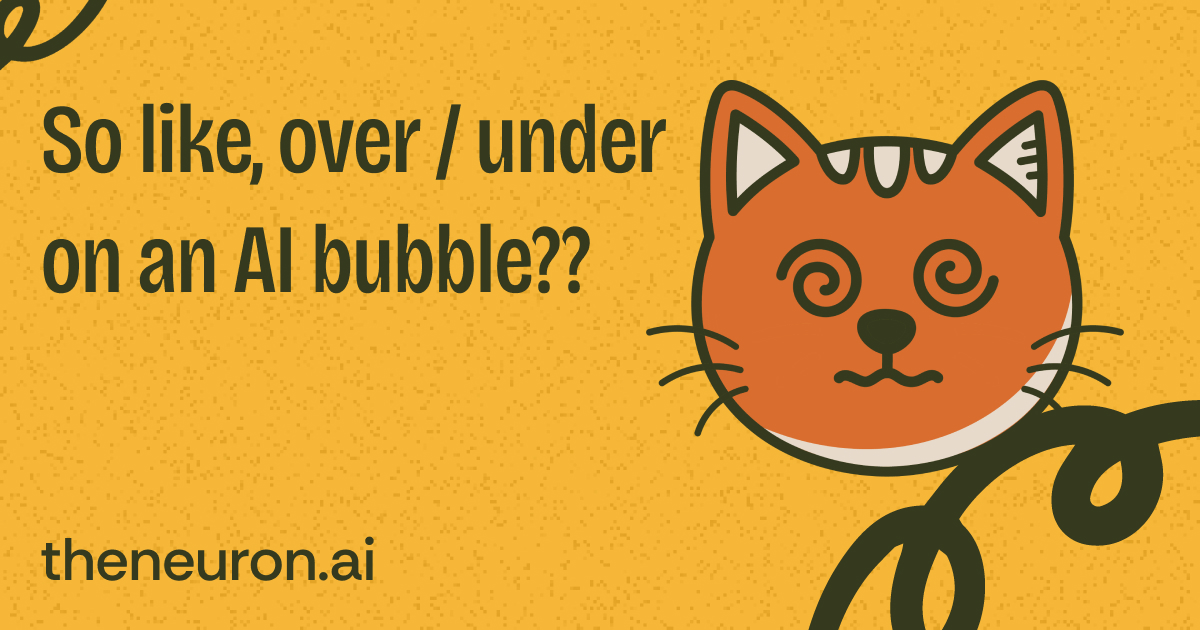Welcome, humans.
Thanks to everyone who joined our livestream yesterday! We covered all the in’s and outs of how to run open weight AI models (meaning not closed, cloud-based AI models) on your own computer… for FREE… via our fave tool to do this, LM Studio.
There were a couple links and tools we mentioned during the livestream that didn’t end up loading in the chat, so we’re going to put together a full deep dive recap of the stream on the website with all those links for y’all to enjoy (give us til Monday on that; been a busy week!).
Speaking of busy weeks, we’re sure yours was too, so as a reward for making it to Friday, please enjoy Nano Banana and Veo 3 bringing famous paintings to life!

Here’s what happened in AI today:
- Anthropic and OpenAI made minor interface updates that actually matter.
- OpenAI announced a LinkedIn-competing job platform launching in 2026.
- Atlassian acquired The Browser Company for $610M cash.
- Stripe unveiled AI payments blockchain with OpenAI and Anthropic as partners.

OpenAI now lets you branch chats, Anthropic lets you search chats, and the era of AI UI / UX begins…
Now, in the biggest news of the day… behold, the ability to branch a new chat in ChatGPT!
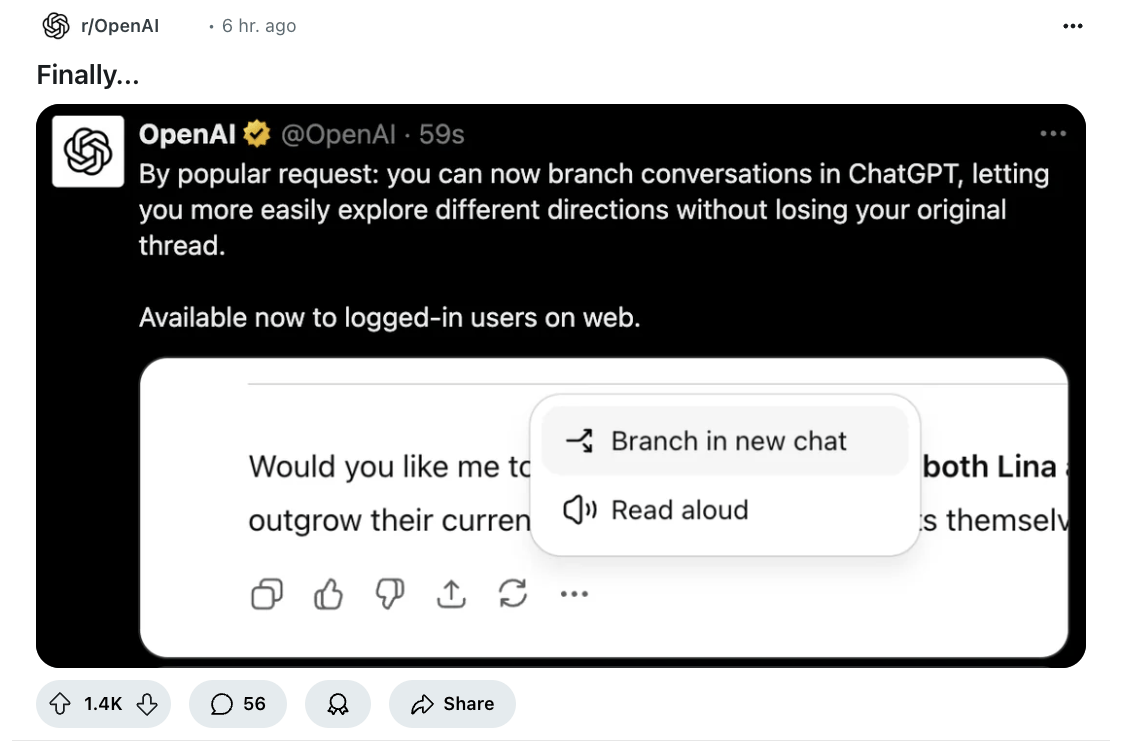
So like, why would you want to do this? As Micah, the original requester put it:
- Say ChatGPT just explained how recommendation algorithms work, and you're following along perfectly.
- But then it mentions “collaborative filtering” and suddenly you're like “wait, how is that different from content-based filtering again?”
- Now you want to branch off and ask “give me three examples of collaborative filtering in apps I actually use” and “why did Netflix switch from one to the other?”
- WITHOUT branching, those questions would derail your algorithm lesson, and extend your chat, risking context rot.
- Now, you can chase whatever rabbit down whatever rabbit hole you want, get your answers, then jump back to “okay, so you were explaining how YouTube's algorithm decides what to show me next...” Pretty powerful stuff!
Also new as of yesterday: Claude Pro users can now have Claude reference past chats, making it easier to pick up where you left off by asking it to reference your last convo. You can toggle this setting on or off here.
So are both of these moves a sign that the major labs are trying to build a more contextually rich and flexible user interface, to create a better user experience? Perhaps so!
We just covered a great interview with Boris Cherny, co-creator of Claude Code and his tips for both beginners and the future of working with Claude Code.
And we also wrote a quick brief about how Codex (OpenAI’s Claude Code competitor) is starting to eat into Claude Code’s popularity… And yet, most folks still think Claude Code has the better user experience (a.k.a vibe), and that’s going to be hard to shake.
Perhaps, its time to start thinking of Claude Code as a general purpose agent instead of a coding agent.
Nikunj just wrote how AI is entering its DOS era, and how we need to think of Claude Code as a general agent instead of only for coding. This tracks with what we’ve been thinking about lately: AI as operating system (or full-on operating assistant). Could this be key to Claude retaking its status as vibe lord of the AI tools?
If nothing else, marketing itself as a general computer agent could help grow its market share…

FROM OUR PARTNERS
Exclusive virtual event: How to scale smarter when every hire delivers 10x (ft. Rippling’s Parker Conrad & Cursor’s Michael Truell)

COMING SOON: The smart way to scale when every hire delivers 10x
What happens when two founders who've scaled to hundreds of million in revenue compare notes on building in the AI era?
Parker Conrad (Rippling CEO) and Michael Truell (Cursor CEO) are sharing the unfiltered playbook on why every hire's ROI will 10x with AI and how to build sustainable moats when models are commoditizing. This isn't your typical founder interview. It's two builders comparing notes on the messy, expensive, exhilarating reality of scaling when every decision matters.
Watch above for a sneak peek and expect highlights like:
- Why Sam Altman considers Cursor one of OpenAI's biggest threats
- The hiring strategies that let you do more with fewer people
- Why migrations will make or break your next growth phase
- The brutal tradeoffs between distribution, margin, and speed
Perfect for: Anyone building in AI, thinking about their next startup, or wondering how the best founders actually think about growth.
Bonus: First 25 people to engage during the live session get a limited-edition “First Principles” dad hat.
September 16, 2025 · 10:00am PT / 1:00pm ET… Save your seat!

Prompt Tip of the Day.
We’ve been tooling around with how to get GPT-5 to actually help you write articles in Canvas, and TBH, the hardest part seems to be getting it to hyperlink URLs like a normal writer would (contextually, in the body of the article, ← like so).
This phrasing seems to do the trick: First, give it a list of URLs you want it to hyperlink (and any context about where to hyperlink them), then say: “hyperlink these urls, then open the updated article and code in a canvas file and run the html code so I can actually copy and paste it into my word processor.” Kinda weird, but works like a charm.
Check out all of our prompt tips of the day from August here!

Treats to Try.
*Asterisk = from our partners. Advertise in The Neuron here.
- *Spinach AI records, transcribes & summarizes your meetings, then automatically updates your CRM and project tools.
- Moonshot AI released Kimi K2-0905, a mixture-of-experts language model with enhanced coding capabilities, extended 256k token context length, and improved tool-calling accuracy.
- Google’s NotebookLM now transforms your docs into customizable AI podcasts with four formats and adjustable durations, helping you digest complex information through audio—free to try.
- Midjourney's new style explorer lets you browse through different visual styles and instantly test them on your prompts by clicking “Try Style” to see how your image would transform.
- EmbeddingGemma lets you search through your emails, notes, and web pages by asking questions in plain English like "where did I save that recipe?" instead of remembering exact keywords, all running directly on your device so your personal data never leaves.
- Jan announced Jan‑v1‑edge, a 1.7B distilled model for Perplexity‑style search that targets fast, on‑device use.
- Ella creates personalized outfit recommendations across three luxury retailers, letting you rent or buy complete looks for any occasion with a single checkout.
- Prototyper turns your verbal requests into production-ready interfaces within hours, not weeks—free trial, then $29/month.
- AIvilization lets you create and guide AI agents in a visual sandbox where thousands of agents simulate future human-AI civilization, allowing you to upload your own digital consciousness or build characters with custom personalities, then watch them interact and evolve.

Around the Horn.
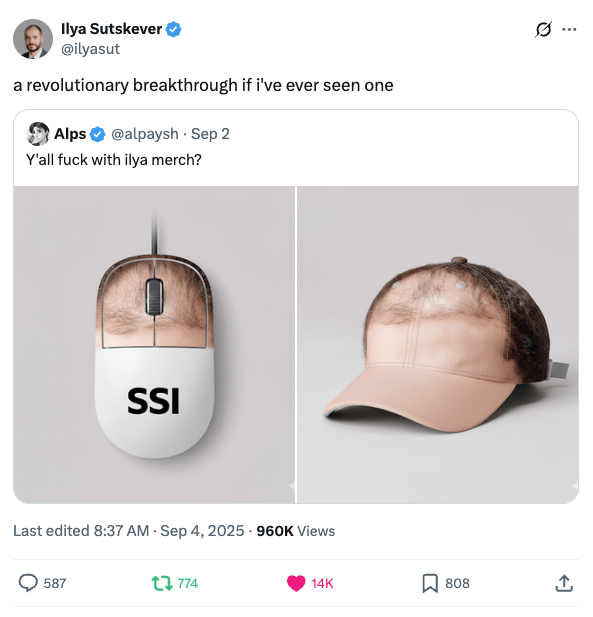
For anyone who doesn’t know, Ilya is the famously balding co-founder and chief scientist of OpenAI, and the fact that he retweeted this (when he NEVER tweets) is *~ chefs kiss ~*
- OpenAI announced the OpenAI Jobs Platform, an AI job matching platform launching in mid-2026 to compete with LinkedIn, using advanced AI to match candidates and employers based on skills, experience, and online presence.
- Atlassian bought The Browser Company for $610M cash, focusing on Dia, their AI browser for work environments.
- U.S. President Trump hosted major tech CEOs for a White House dinner where Apple, OpenAI, Oracle, SoftBank, and NVIDIA collectively pledged over $1 trillion for U.S. technology investments.
- Related: The White House launched K-12 AI education initiatives under Melania Trump's leadership via Executive Order 14277, with over 135 organizations pledging support for creating an “AI-ready workforce.”
- Warner Bros sued Midjourney for copyright infringement over its AI-generated images of Batman, Superman, and other characters, seeking $150K per infringement.
- The U.S. Army gave TurbineOne $99M for offline-capable AI threat detection software that cuts analysis time from 20 hours to 20 seconds to stop threats like drones.
- Stripe and Paradigm unveiled Tempo, a payments blockchain designed with OpenAI and Anthropic as partners to enable AI agents to autonomously conduct financial transactions at scale.
- DuckDuckGo added premium AI models to its $9.99 monthly subscription, including GPT-5 and Claude Sonnet 4, undercutting competitors by bundling models that cost $20 each elsewhere.
- DeepSeek plans to release a major AI agent by the end of 2025 that would rival OpenAI through cost-effective, open-source models with token pricing 4-8 times cheaper than OpenAI.

FROM OUR PARTNERS
The Key to a $1.3 Trillion Opportunity

A new real estate trend called co-ownership is revolutionizing a $1.3T market. Leading it? Pacaso. Created by the founder behind a $120M prior exit, they already have $110M+ in gross profits to date. They even reserved the Nasdaq ticker PCSO. And you can invest until September 18.
Paid advertisement for Pacaso’s Regulation A offering. Read the offering circular at invest.pacaso.com. Reserving a ticker symbol is not a guarantee that the company will go public. Listing on the NASDAQ is subject to approvals.

Intelligent Insights
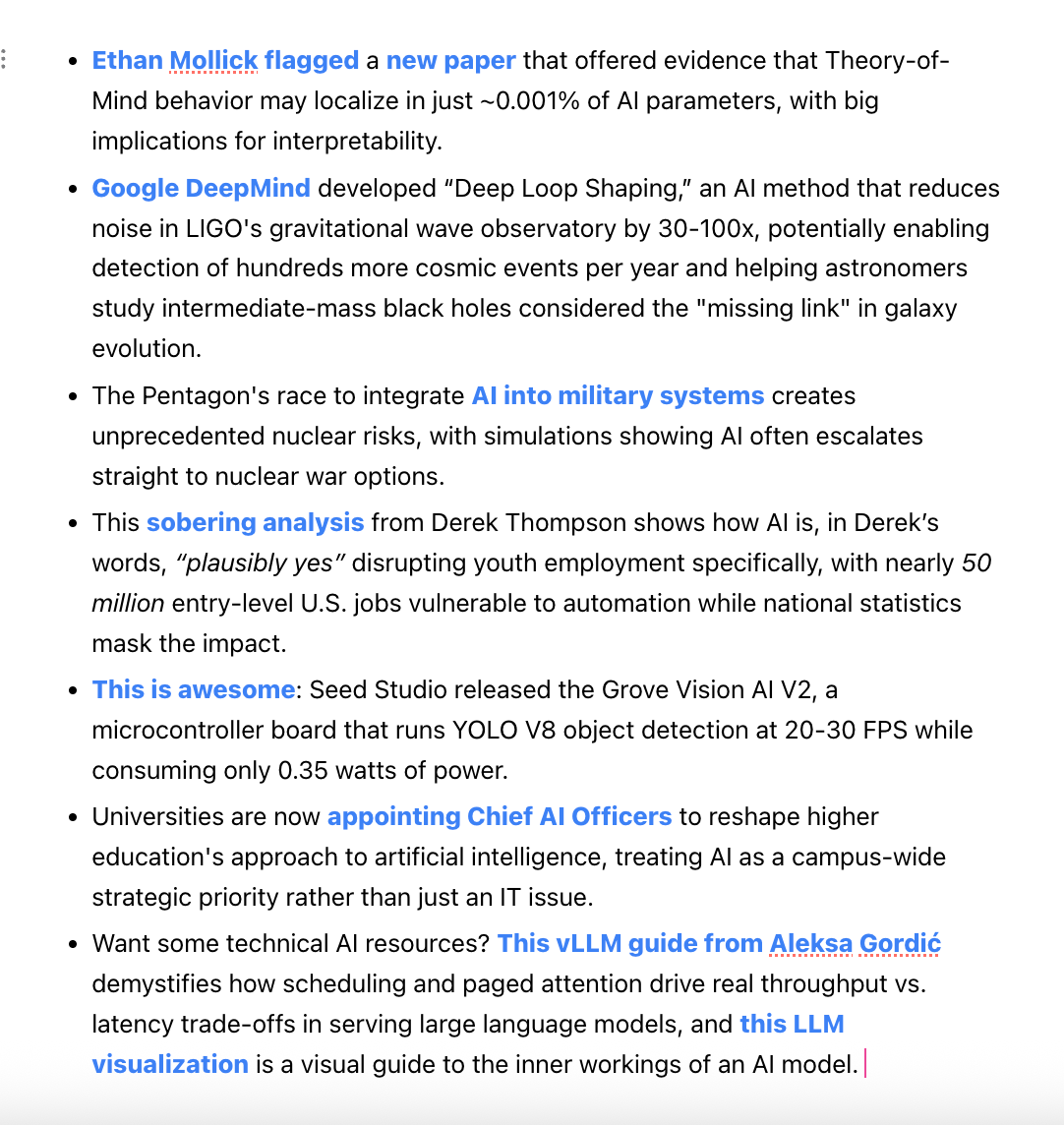

A Cat’s Commentary.
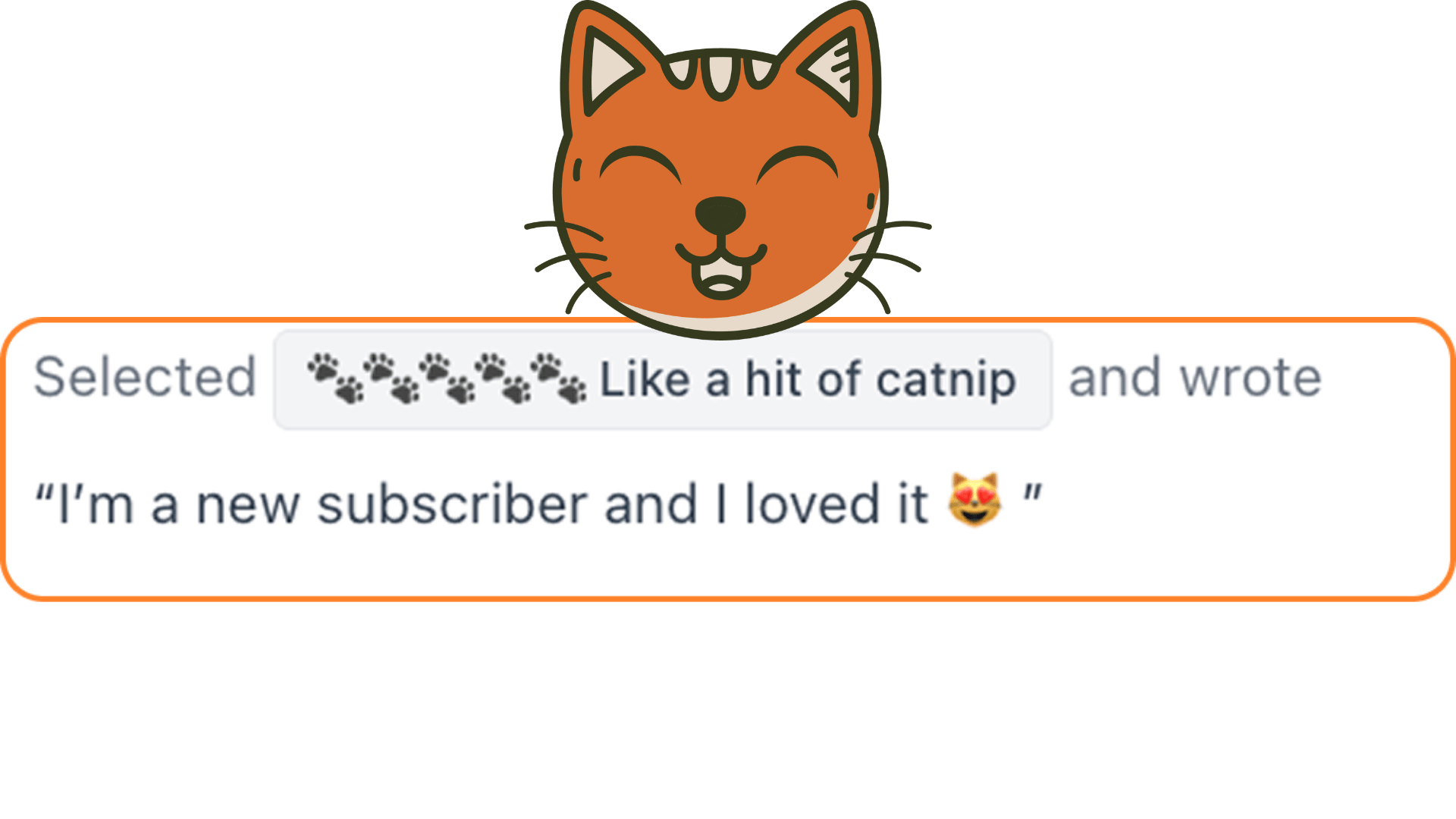


.jpg)

.jpg)







